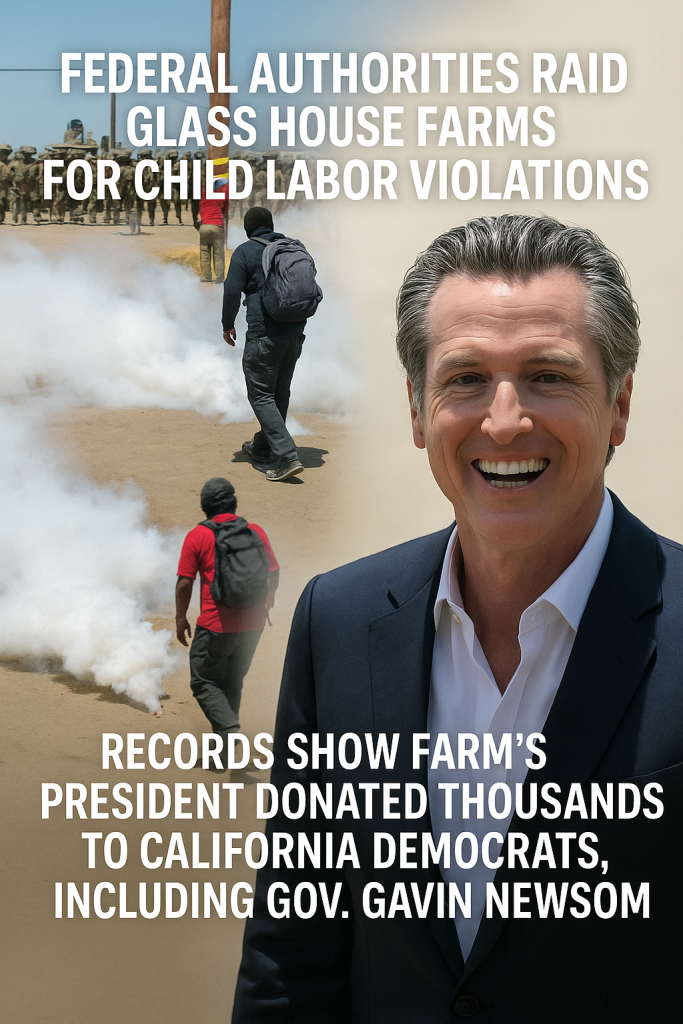Federal authorities recently conducted a raid at Glass House Farms, a prominent California agricultural company, uncovering alleged child labor violations that have sparked widespread concern and scrutiny. The investigation has drawn heightened attention not only due to the serious nature of the charges but also because of the farm’s president’s sizeable political donations to prominent California Democrats, including Governor Gavin Newsom.
The raid, which took place earlier in 2024, centered on allegations that Glass House Farms employed underage workers in conditions that may have violated federal labor laws designed to protect young farmworkers. Federal labor enforcement officials seized documents and gathered testimonies as part of a detailed probe into these allegations. Child labor laws in agriculture strictly regulate the minimum age and the working conditions for youth to prevent exploitation and ensure safety, making this case particularly significant given its potential violations.
Glass House Farms is known as a major producer of berries and various other crops, supplying markets across the United States. In recent years, the company grew exponentially, partly due to mechanization efforts and also by expanding its workforce. However, this expansion now faces the risk of intense regulatory scrutiny as authorities evaluate if the farm circumvented labor laws to meet high production demands.
Adding complexity to the unfolding story, public records reveal that the farm’s president has made political contributions amounting to thousands of dollars to leading California Democrats, including Governor Gavin Newsom. These donations have raised questions about political influence and oversight within the state’s agricultural industry.
Transparency advocates and labor rights groups argue these contributions spotlight potential conflicts of interest when enforcement actions involve politically connected enterprises. They stress the importance of stringent investigations and accountability, irrespective of the political affiliations or financial involvement of corporate leaders. Meanwhile, government officials, including representatives close to the governor, have stated that all labor investigations proceed independently of political considerations and remain focused solely on enforcing labor standards and protecting workers.
The controversy surrounding Glass House Farms underscores broader challenges facing California’s agricultural sector, which remains a critical contributor to the state’s economy but has been periodically marred by allegations of labor abuses. Child labor remains a sensitive and highly regulated area, with federal oversight agencies keeping a watchful eye on farm labor practices to prevent exploitation of minors.
This development comes at a time when California is tightening labor regulations and increasing enforcement efforts across various industries. Worker advocacy groups contend that the Glass House Farms case should serve as a wake-up call for stricter compliance measures and enhanced protections for vulnerable workers, especially children involved in farm labor.
As the federal investigation continues, Glass House Farms has declined to comment publicly on the specifics of the raid but has pledged cooperation with authorities. The company emphasized its commitment to lawful and ethical labor practices in prior statements but has yet to address the implications of the child labor allegations directly.
With the intersecting issues of child labor law enforcement and political donations now in the spotlight, this case is likely to fuel ongoing debates about corporate responsibility, political transparency, and labor justice in California’s agricultural heartland.
Further updates are expected as federal authorities pursue their investigation and as California’s political and labor landscapes respond to these revelations.



